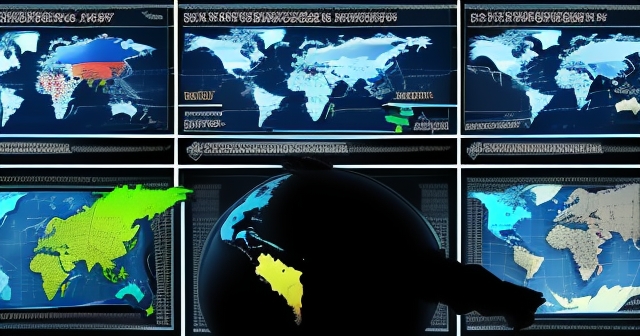
Geopolitical Events and Forex: How to Stay Ahead in Currency Trading
Table of Contents
ToggleGeopolitical Tremors: How Global Events Shape Your Forex Trading
Welcome, aspiring and experienced traders! The world of Forex, the foreign exchange market, is a dynamic and often unpredictable place. It’s the largest financial market globally, with trillions changing hands daily. What drives these massive movements? While economic indicators and central bank policies are undoubtedly crucial, there’s a powerful, often overlooked force at play: geopolitical events. Think of global politics not as distant headlines, but as seismic shifts directly impacting the ground you trade on.
Understanding the intersection of geopolitics and Forex isn’t just about knowing trivia; it’s about gaining a deeper insight into market catalysts. Geopolitical events are essentially any political, economic, or social occurrences that affect a region or the entire globe. This could be anything from an election result or a trade negotiation to a natural disaster, a conflict, or the imposition of sanctions. When these events unfold, they don’t just make the news; they send ripples, sometimes tsunamis, through currency valuations.
- Geopolitical events can drastically impact currency valuations.
- Effective trading requires understanding the broader context of market movements.
- Geopolitical analysis complements technical and fundamental analysis.
For us as traders, navigating the Forex market effectively requires looking beyond the charts. While technical analysis gives us valuable patterns and entry/exit points, fundamental analysis, particularly the geopolitical aspect, provides the ‘why’ behind sudden price swings. It helps us anticipate potential volatility, understand shifts in market sentiment, and identify which currencies might become safe havens or face pressure. Without this geopolitical lens, you’re only seeing half the picture. Let’s embark on a journey together to illuminate this complex relationship, breaking down how global events translate into trading opportunities and risks.
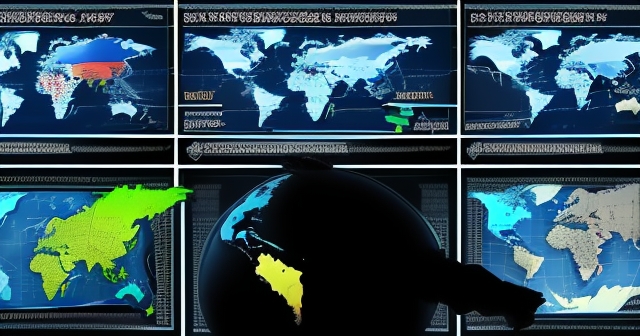
The Undeniable Link: Geopolitics as a Forex Catalyst
Why does a political event thousands of miles away matter for your currency pair trade? Because currencies represent economies, and economies are deeply intertwined with their political and social stability, their trade relationships, and their security. A nation’s currency is, in many ways, a reflection of its standing and perceived strength in the global arena. When that standing is challenged or changed by a geopolitical event, the currency reacts.
Consider a sudden political crisis in a major trading bloc. This isn’t just a headline; it introduces uncertainty about future economic policy, trade agreements, or even the integrity of the bloc itself. Investors, being risk-averse by nature, might withdraw capital, leading to a depreciation of the affected currencies. Conversely, positive geopolitical developments, like a successful trade treaty negotiation, can boost confidence and strengthen a currency.
| Geopolitical Event | Impact on Currency |
|---|---|
| Political Crisis | Currency depreciation |
| Positive Trade Treaty | Currency appreciation |
| Natural Disaster | Unpredictable volatility |
The most direct impact of geopolitical events is often a surge in market volatility. Imagine the market as a calm sea; a geopolitical event is like a sudden storm. Prices can move sharply and unpredictably. This volatility can be challenging, especially for new traders, but for those who understand the underlying forces, it can also present opportunities if managed correctly. Think of volatility not just as risk, but as amplified movement where profits (or losses) can accumulate faster.
Moreover, these events disrupt market stability. Stable political environments and predictable international relations foster steady economic growth and attract investment. When this stability is shaken by conflict, sanctions, or sudden policy shifts, capital flows change direction, and currencies fluctuate wildly. Staying informed about potential geopolitical flashpoints is therefore not optional; it’s essential market intelligence.
Key Global Flashpoints and Their Currency Impacts
Let’s get specific. Where are the major geopolitical engines currently driving or likely to drive Forex market movements? The provided information highlights several critical areas. One significant flashpoint remains tensions in the **Middle East**. This region is intrinsically linked to global energy markets, particularly oil and gas production and supply routes. Decisions by **OPEC+** members regarding output levels are highly political and have immediate economic consequences.
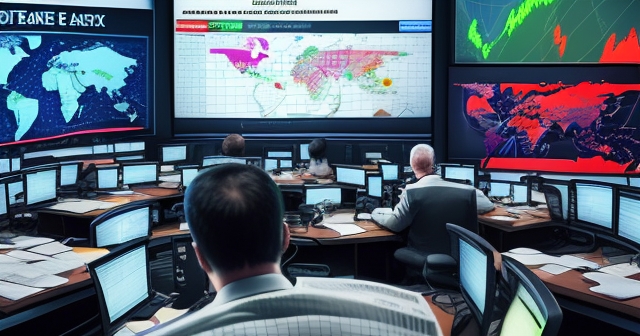
When Middle East tensions escalate or **OPEC+** announces unexpected production cuts, global energy prices typically rise. This directly impacts currencies of major oil and gas exporters. For instance, the **Norwegian Krone (NOK)**, the **Russian Ruble (RUB)**, and the **Canadian Dollar (CAD)** are often sensitive to these energy price fluctuations. A rise in oil prices can strengthen these currencies as their export revenues increase, while a drop can weaken them. Understanding the political dynamics within **OPEC+** and the broader regional stability is key to anticipating these currency movements.
Another area of persistent geopolitical risk is the rivalry between major global powers, notably the **United States** and **China**. While trade tensions might not grab headlines every day as they once did during explicit ‘trade wars’ with significant **tariffs**, the underlying strategic competition remains. Potential future policy shifts, such as a new **US Presidential Administration** imposing increased **tariffs** or restrictions on trade and technology, could significantly impact currencies of key trading partners.
The **Chinese Yuan (CNY)** is particularly sensitive to **US-China** trade relations and policy pronouncements. **Tariffs** or trade barriers can negatively affect **China’s** export-driven economy, putting downward pressure on the **CNY**. Similarly, the **Japanese Yen (JPY)** and the **Australian Dollar (AUD)**, heavily reliant on trade with both the **US** and **China**, often react strongly to developments in this relationship. Any renewed talk of **trade wars** or increased **tariffs** should immediately grab your attention if you trade pairs involving these currencies.
| Major Geopolitical Risk | Currency Impact |
|---|---|
| US-China Trade Rivalry | Weakens CNY, JPY, AUD |
| Middle East Oil Tensions | Strengthens NOK, RUB, CAD |
| Russia-Ukraine Conflict | Extreme volatility in RUB |
The **Russia-Ukraine conflict** continues to exert a significant influence on global markets. Beyond the immediate humanitarian crisis, the conflict has triggered extensive **sanctions** against **Russia**, deeply impacting its economy and the **Russian Ruble (RUB)**, which has seen extreme volatility. The conflict also disrupts global energy and commodity markets, affecting related currencies and contributing to broader **inflationary** pressures globally. The political and military developments in this region remain a crucial factor for traders to monitor.
Mechanisms of Geopolitical Influence on Currencies
How exactly do these global events translate into changes in currency values? It happens through several key mechanisms that affect capital flows, investor confidence, and central bank behavior.
One of the most well-known mechanisms is the ‘flight to safety,’ leading to **safe-haven** demand. When geopolitical uncertainty or **conflict** increases, investors tend to move their capital out of riskier assets and into those perceived as secure. Certain currencies are traditionally considered **safe havens**. The **US Dollar (USD)** is the primary global **safe haven**, backed by the size and stability of the **US** economy and its role as the world’s reserve currency. The **Swiss Franc (CHF)** benefits from **Switzerland’s** historical neutrality and strong banking sector. The **Japanese Yen (JPY)** is also often sought as a **safe haven**, particularly during periods of regional instability in Asia.
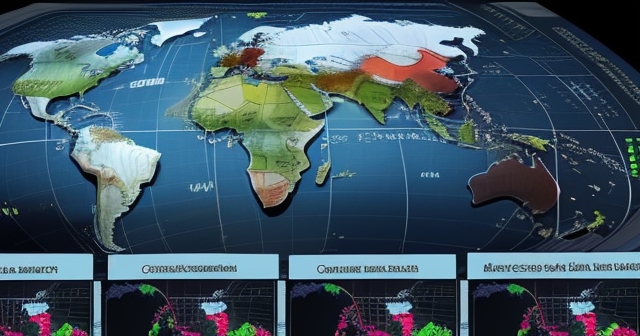
During times of geopolitical stress, we often see these **safe-haven** currencies appreciate as capital flows into them, regardless of their economic fundamentals in isolation. Conversely, currencies of countries directly involved in or heavily exposed to the conflict or crisis, or those of emerging markets perceived as higher risk, tend to depreciate.
Another critical mechanism involves central banks. Central banks, like the **European Central Bank (ECB)** or the **Federal Reserve** (often implied by US economic data like **NFP**), are tasked with maintaining economic stability and controlling **inflation**. Geopolitical events can disrupt supply chains, impact commodity prices, and alter economic growth forecasts, all of which influence central bank decision-making.
For example, rising energy prices due to **Middle East** tensions can fuel **inflation**. A central bank might respond by considering or implementing tighter **monetary policy**, such as increasing **interest rates**, to combat **inflation**. Changes in **interest rates** are fundamental drivers of currency values, as higher rates can attract foreign investment seeking better returns. Thus, geopolitical events can indirectly lead to significant shifts in **monetary policy**, directly impacting a currency’s value.
| Mechanism | Effect on Currency |
|---|---|
| Flight to Safety | Appreciation of safe-haven currencies |
| Central Bank Actions | Changes in interest rates affect currency values |
| Trade Relations | Impact on currency depending on export/import dynamics |
Furthermore, geopolitical events shape trade relations and agreements. The renegotiation of trade pacts, the imposition of **sanctions**, or the formation of new trade blocs can alter the economic prospects of the involved countries. For instance, discussions around the **USMCA** agreement can impact the **Canadian Dollar (CAD)** and **Mexican Peso (MXN)**. Changes in trade flows affect a country’s balance of trade, which in turn influences demand for its currency.
Finally, geopolitical events heavily influence market sentiment. News headlines, political rhetoric, and perceived risks can create waves of optimism or pessimism that drive trading decisions. If a diplomatic solution to a crisis seems likely, **market sentiment** might improve, leading to a rally in affected currencies or a decline in **safe-haven** demand. Conversely, escalating tensions can trigger panic selling and a rush to safety. **Market sentiment**, while intangible, is a powerful force amplified by geopolitical developments.
When you’re looking at a chart, ask yourself: Is there a significant global event happening right now that could be influencing this pair? Connecting the dots between the news and the price action is a vital skill.
If you’re looking to deepen your understanding of how global events like these can impact various financial instruments, not just Forex, and want a platform that offers a wide range of options, exploring where others trade can be beneficial. If you’re considering starting or expanding your trading activities, particularly in Forex or CFDs, then Moneta Markets is a platform worth considering. Based in Australia, it provides access to over 1000 financial instruments, catering to both new and experienced traders alike.
Vulnerabilities and Emerging Geopolitical Risks
Beyond the headline-grabbing conflicts, several other geopolitical factors create vulnerabilities and present emerging risks for the Forex market. One area of concern is rising **debt levels** in **Emerging Markets**. Geopolitical instability can exacerbate economic fragility in these regions, making their currencies particularly vulnerable to capital flight and devaluation.
Countries with existing economic challenges, coupled with political uncertainty or regional tensions, often see their currencies depreciate sharply during global risk-off periods. Currencies like the **Argentine Peso (ARS)**, **South African Rand (ZAR)**, and **Turkish Lira (TRY)** have historically shown sensitivity to both domestic political developments and broader global risk appetite driven by geopolitics. Monitoring the political and economic stability of **Emerging Markets** is crucial if you trade their currencies.
An increasingly significant, though less visible, geopolitical threat is **cyber espionage** and cyberattacks on critical infrastructure. State-sponsored cyber activities can target financial systems, energy grids, or communication networks, potentially causing significant economic disruption and damaging confidence in a nation’s stability. While the direct impact on a currency might not be as immediate as a conflict, a major cyber incident could severely impact **market sentiment** and trigger capital outflows.
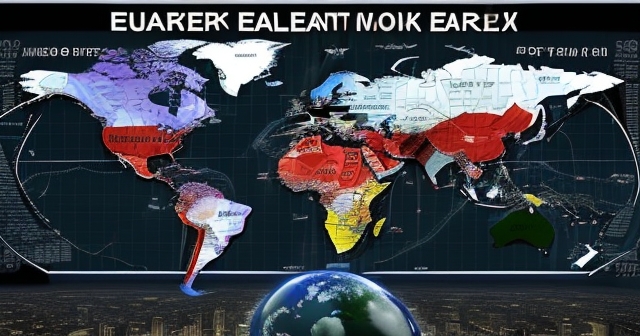
The strategic control and competition over **resources**, particularly **critical minerals**, is also becoming a more prominent geopolitical tool. Nations are increasingly viewing control over supply chains for essential materials (needed for everything from electronics to renewable energy technology) as a matter of national security and economic leverage. Geopolitical maneuvering for access to or control over these **resources** (like in **Afghanistan** with its vast mineral wealth, or the competition for rare earths) can influence international relations, trade policies, and potentially the economic standing of nations involved, with indirect effects on their currencies.
Even seemingly domestic political events can spill over and have global financial implications. Actions taken by a **US Presidential Administration**, such as threatening government contracts or altering trade policy stance based on political factors, can create significant **market uncertainty**. While not a traditional geopolitical ‘conflict,’ the unpredictability introduced by such actions can impact business confidence and contribute to currency fluctuations, especially for pairs involving the **USD**. This reminds us that the line between domestic politics and international finance is often blurred.
Navigating Geopolitical Risk in Your Forex Trading
So, how do you, as a Forex trader, navigate this complex landscape shaped by geopolitics? It starts with recognizing that these risks are real and must be accounted for in your trading strategy.
- Stay informed by following major global news sources and headlines.
- Implement strong risk management practices to protect against sudden market shifts.
- Diversify your trading portfolio to buffer against geopolitical turbulence.
The first step is to stay informed. This doesn’t mean becoming a political science expert overnight, but rather developing a habit of following major global news sources. Pay attention to headlines concerning international relations, trade policies, political stability in key regions, and significant elections or referendums. Understand the potential implications of these events for the currencies you trade. Many financial news outlets specifically discuss the link between geopolitical events and market reactions; make use of these resources.
Secondly, **risk management** is paramount, especially in a market driven by **volatility**. Geopolitical events can trigger sudden, sharp moves that can quickly erode your capital if you are overexposed or unprotected. Always use stop-loss orders to limit potential losses if the market moves against your position unexpectedly. Don’t risk more capital on any single trade or currency pair than you can afford to lose, particularly during periods of heightened geopolitical tension.
Diversification can also be a valuable strategy. Instead of concentrating all your capital in a few currency pairs, especially those linked to potentially unstable regions, consider spreading your risk across different pairs with varying geopolitical exposures. This helps buffer your portfolio against adverse movements triggered by events affecting a single region or currency.
For more experienced traders, hedging strategies might be an option. If you hold a position in a currency vulnerable to geopolitical risk, you might consider taking an offsetting position in a **safe-haven** currency or related instrument to mitigate potential losses. Hedging adds complexity but can be an effective tool for managing specific risks.
Finally, remember that geopolitical analysis should complement, not replace, your technical and fundamental analysis. Use your understanding of global events to inform your view of potential market direction, assess the likelihood of increased **volatility**, and select appropriate **risk management** tools. Combine this macro perspective with your analysis of economic indicators like **NFP**, **Unemployment Rate**, and **Inflation**, and with the patterns you identify on the charts.
Trading the Forex market requires not just technical skill but also a keen awareness of the broader global environment. By integrating geopolitical awareness into your trading process, you enhance your ability to anticipate market movements, manage risk, and potentially improve your trading performance.
Finding a brokerage that supports your need for diverse instruments and provides robust tools for managing risk in various market conditions is also key. If you’re looking for a brokerage with flexibility and technological advantages, Moneta Markets is worth exploring. They offer popular platforms like MT4, MT5, and Pro Trader, combining high-speed execution with competitive low spreads, providing a solid trading experience.
The Interplay of Politics, Policy, and Currencies
Let’s delve a bit deeper into how specific political actions and policy threats, even those seemingly domestic, can reverberate through currency markets. The data mentioned actions by a **US president** impacting business contracts or trade stances. This highlights a crucial point: the actions and rhetoric of key political figures, particularly leaders of major economies, carry significant weight in global financial markets.
When a political leader makes unexpected pronouncements about trade policy, imposes **sanctions**, or even engages in public feuds that could impact international relations, it creates **uncertainty**. Markets dislike uncertainty. Businesses become hesitant to invest or enter into long-term contracts if they fear sudden policy shifts. This hesitation can slow economic activity and negatively impact a country’s economic outlook, which in turn can weaken its currency.
Consider the impact of discussions around critical resources or strategic industries. If a country signals a policy shift regarding, for instance, the export of specific minerals crucial for global technology, this can trigger reactions in the currencies of countries dependent on those exports or those competing for them. It’s a form of economic leverage, and the perceived strength or willingness to use that leverage can influence investor confidence and currency valuations.
Similarly, shifts in defense strategy or alliances can have economic undertones. Discussions around defense spending, military aid (**Ukraine War** context), or the formation of new defense pacts (like a potential **UK-EU Defense Pact**) reflect changing geopolitical priorities. While not directly financial, these developments signal shifts in national focus and resource allocation, which can indirectly impact economic stability and perceived risk.
| Policy Action | Potential Currency Impact |
|---|---|
| Sanction Imposition | Currency depreciation of targeted nation |
| Trade Policy Changes | Volatility in affected currencies |
| Defense Spending Announcements | Market confidence fluctuations |
Even events like specific economic data releases (**NFP** in the **US**) are often viewed through a political lens. A strong **NFP** report might be seen as positive for the **USD**, suggesting economic strength. However, if this report comes amidst concerns about rising **inflation** fueled by geopolitical disruptions or fears of impending **tariffs**, the market reaction can be more complex, influenced by expectations of how the **Federal Reserve** might respond considering both the economic data and the geopolitical backdrop.
This constant interplay between political actions, resulting policy changes (or threats), and their economic consequences is what makes Forex trading in a globalized world so challenging, yet potentially rewarding. It requires a holistic view that connects headlines to charts.
Safe Havens and Riskier Bets in a Geopolitical Climate
We’ve touched on **safe-haven** currencies, but let’s solidify this concept. In times of heightened geopolitical risk – be it a military **conflict**, a severe political crisis, or a widespread financial panic stemming from global events – certain currencies tend to strengthen as capital seeks safety. The **USD**, **CHF**, and **JPY** are the most prominent examples.
Why these three? The **USD** benefits from the size and liquidity of **US** financial markets, the status of the dollar as the world’s reserve currency, and the relative stability of the **US** political system compared to hot zones. The **CHF** is backed by **Switzerland’s** long history of neutrality, its strong economy, and robust financial institutions. The **JPY** often benefits from **Japan’s** status as a major creditor nation and its generally low **interest rates**, which can make it attractive for carry trades during calm times, but prompt repatriation of capital during crises.
On the flip side, certain currencies are often perceived as riskier bets during geopolitical turbulence. These include currencies of **Emerging Markets** (like **ARS**, **ZAR**, **TRY**) that may have weaker economies, higher **debt levels**, or greater susceptibility to political instability or capital flight. Currencies of countries heavily reliant on specific commodity exports (like the **RUB** or sometimes the **CAD**) can also become volatile if the geopolitical event directly impacts those commodities or the export routes.
Currencies of countries directly involved in or geographically proximate to a **conflict** or severe crisis are, understandably, also seen as higher risk. The **Ukrainian Hryvnia (UAH)**, for example, has been severely impacted by the ongoing war.
| Currency Type | Risk Level |
|---|---|
| Safe Haven (USD, CHF, JPY) | Low Risk |
| Emerging Markets (ARS, ZAR, TRY) | High Risk |
| Commodity Dependent (RUB, CAD) | Moderate to High Risk |
It’s important to note that while these are general tendencies, the market’s reaction can vary depending on the specific nature of the geopolitical event. Sometimes, even traditional **safe havens** can be affected if the crisis is truly global or directly involves the **safe-haven** country itself. For instance, a severe political crisis within the **United States** could potentially weaken the **USD’s** **safe-haven** appeal, though this is rare due to the **USD’s** dominant global position.
Understanding which currencies are likely to gain or lose value based on shifts between ‘risk-on’ (periods of market confidence and investment in riskier assets) and ‘risk-off’ (periods of fear and flight to safety) sentiment is crucial for anticipating currency movements driven by geopolitics.
Central Bank Responses and Monetary Policy Shifts
One of the most direct channels through which geopolitical events impact Forex is by influencing central bank actions. Central banks around the world constantly monitor economic conditions and global events to make decisions about **monetary policy**, primarily **interest rates** and quantitative easing/tightening.
Geopolitical events can trigger economic consequences that force central banks to react. For example, a **conflict** or **sanctions** might disrupt supply chains, leading to shortages and pushing up prices – contributing to **inflation**. Facing rising **inflation**, a central bank might decide to hike **interest rates** to cool down the economy, making the currency more attractive to foreign investors seeking higher yields. Conversely, a severe geopolitical shock that threatens to plunge the economy into recession might prompt a central bank to cut **interest rates** or implement stimulus measures, potentially weakening the currency.
Consider the **ECB’s** decisions regarding the **Euro (EUR)**. Geopolitical stability within Europe, particularly regarding the **Russia-Ukraine conflict** and energy security, is a significant factor for the **Eurozone** economy. Developments that threaten this stability or impact energy supplies can influence the **ECB’s** assessment of economic growth and **inflation** risks, thereby affecting their **monetary policy** stance. A more hawkish (rate-hiking) stance tends to support the **EUR**, while a dovish (rate-cutting or easing) stance can weigh on it.
| Central Bank Action | Currency Effect |
|---|---|
| Rate Hike | Currency appreciation |
| Rate Cut | Currency depreciation |
| Quantitative Easing | Potential currency weakening |
Similarly, the **Federal Reserve** in the **US**, while primarily focused on domestic economic data like **NFP** and **inflation**, also considers the global economic outlook, which is heavily influenced by geopolitical events. A global slowdown triggered by geopolitical factors could make the **Fed** more cautious about raising **interest rates**, even if domestic data is strong. This interaction between domestic economics and the international geopolitical environment makes predicting central bank moves complex.
For traders, it’s vital to not only track major geopolitical events but also understand how these events might influence central bank thinking and subsequent **monetary policy** decisions. Central bank announcements and policy changes are often the most impactful fundamental drivers of short-to-medium term currency movements.
Trade Wars, Tariffs, and Currency Valuation
The concept of ‘trade wars’ might seem like a relic of the past few years, but the underlying tension and potential for renewed protectionist policies remain a significant geopolitical risk for the Forex market. **Trade wars** involve countries imposing **tariffs** or other barriers on each other’s goods and services, disrupting international trade flows.
When a country imposes **tariffs** on another, it makes the target country’s exports more expensive, potentially reducing demand and negatively impacting that country’s economy. This can weaken the target country’s currency. For example, when the **US** imposed significant **tariffs** on Chinese goods, it put pressure on the **Chinese Yuan (CNY)**.
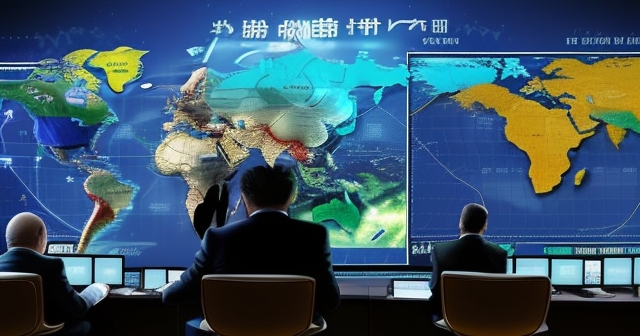
Conversely, the country imposing the **tariffs** might see some domestic benefit if consumers switch to domestically produced goods, but it can also face retaliation and higher costs for imported goods, potentially leading to **inflation**. The overall impact on the imposing country’s currency is less clear-cut and depends on the scale of the **trade war** and the country’s economic structure.
Beyond **tariffs**, other protectionist measures, such as quotas, subsidies, or complex regulations designed to favor domestic industries, can also disrupt trade and affect currencies. Negotiations or disagreements over major trade agreements, like potential changes to **USMCA** involving **Canada** and **Mexico**, introduce uncertainty that can cause the **CAD** and **MXN** to fluctuate.
Keeping an eye on trade rhetoric and policy announcements from major economic powers is essential. Any signs of escalating trade tensions or the potential imposition of new **tariffs** should be factored into your analysis, particularly if you trade currencies like the **CNY**, **JPY**, **AUD**, **CAD**, or **MXN**, which are highly exposed to global trade dynamics.
Understanding that a simple announcement about potential **tariffs** can send shockwaves through multiple currency pairs underscores the interconnectedness of the global economy and the power of geopolitical factors.
Resource Control and Strategic Implications for Currencies
Increasingly, geopolitical competition is centering on the control and leveraging of critical resources. This isn’t just about oil anymore; it includes minerals essential for technology and defense, water rights, and even access to strategic geographic locations.
Countries rich in essential **resources** can gain significant geopolitical leverage. For instance, a country controlling a large portion of the world’s supply of a **critical mineral** can use that control for diplomatic or economic advantage. Threats to restrict access or impose export controls on such **resources** can impact global supply chains, affect industries reliant on those materials, and introduce uncertainty into the global economy.
How does this affect currencies? A country leveraging its **resources** effectively might see its economic standing improve or its geopolitical influence increase, potentially strengthening its currency over the long term. Conversely, a country dependent on importing such **resources** could face economic challenges if supply is disrupted or prices surge due to geopolitical factors, potentially weakening its currency.
Even competition in areas like **deep-sea mining** or securing supply chains for **critical minerals** (**Trump’s** focus mentioned in the data) reflects this growing geopolitical battleground. These aren’t just environmental or industrial issues; they are strategic plays with underlying economic implications that can, over time, influence the relative strength of national economies and their currencies.
While the direct, immediate impact on currency values might be less obvious than a **conflict** or **tariff** announcement, the long-term strategic importance of **resource control** can shape economic trajectories and contribute to the fundamental value of a currency. It’s a slower burn geopolitical factor but one worth considering for long-term fundamental analysis.
Beyond Conflict: Cyber Threats and Geopolitical Instability
Geopolitical risk isn’t always about armies and borders. In the 21st century, cyber warfare and espionage represent a significant, often invisible, geopolitical threat with potential economic consequences. State-sponsored **cyber espionage** can target intellectual property, financial institutions, or critical national infrastructure.
A successful large-scale cyberattack on a country’s banking system, energy grid, or stock exchange could cause widespread disruption, damage **market sentiment**, and lead to a loss of confidence in the affected economy. While we haven’t seen a cyberattack directly trigger a currency collapse yet, the potential is there. The mere threat of such attacks (like the mention of **Volt Typhoon** or **Salt Typhoon**) contributes to a general sense of geopolitical **risk**.
Furthermore, cyber capabilities are increasingly being used as tools in **gray zone warfare** – actions below the threshold of open conflict. This can include disinformation campaigns aimed at destabilizing a country’s political system or targeted attacks designed to weaken specific sectors of its economy. Such activities contribute to political instability and **market uncertainty**, indirectly impacting currency values.
For Forex traders, while a cyberattack might not be as predictable as an election date, understanding that this is an active geopolitical domain adds another layer to **risk assessment**. News about significant state-sponsored cyber activity or threats should be noted, particularly in relation to countries whose currencies you trade.
The increasing reliance on digital infrastructure means that cyber security is becoming an economic issue, intertwined with geopolitical security. A nation’s resilience to cyber threats can increasingly be a factor in its perceived stability and attractiveness to international investors.
Bringing It Together: Combining Geopolitical Analysis with Trading
We’ve covered a lot of ground, exploring how everything from **conflicts** and **tariffs** to **cyber espionage** and **resource control** can impact the Forex market. The key takeaway is that geopolitics is not separate from finance; it’s an integral force shaping the global economic landscape and, by extension, currency valuations.
For you as a trader, this means integrating geopolitical awareness into your analytical toolkit. It complements technical analysis by providing context for price movements and fundamental analysis by adding a layer beyond traditional economic indicators. Think of it as adding peripheral vision to your trading screen.
- Identify major geopolitical flashpoints relevant to your trades.
- Develop a watch list of geopolitical events that could impact your positions.
- Refine your risk management strategies based on geopolitical exposures.
How can you practically apply this? Start by identifying the major geopolitical flashpoints relevant to the currencies you trade. Are you trading **EUR/USD**? Then understanding the political stability in the **Eurozone**, the **Russia-Ukraine conflict’s** impact on Europe, and the political climate in the **US** is crucial. Trading **AUD/JPY**? Pay attention to **US-China** relations, commodity prices (relevant to **AUD**), and Japan’s position as a **safe haven** and major trading nation.
Develop a watch list of geopolitical events or themes that could impact your positions. This might include upcoming elections, major diplomatic meetings, potential policy announcements regarding **tariffs** or **sanctions**, or escalating tensions in a volatile region. While you can’t predict the future, being aware of potential catalysts allows you to prepare.
Crucially, use geopolitical insights to refine your **risk management** strategy. If a currency pair is highly exposed to a brewing geopolitical storm, you might choose to reduce your position size, widen your stop-loss orders (if you anticipate increased **volatility** but still believe in the trade direction), or even step aside until the situation is clearer. Geopolitics often increases **market volatility** and uncertainty, making careful **risk management** more important than ever.
Remember the cyclical nature of **market sentiment**. Geopolitical crises often lead to initial panic and a flight to **safe havens**, followed by periods of consolidation or even reversal as the situation evolves or potential resolutions emerge. Understanding the typical market reactions to different types of events can help you navigate these phases.
Building your knowledge base on geopolitical issues takes time and effort, but the payoff can be significant. It allows you to anticipate potential shifts, understand the underlying drivers of market movements, and make more informed trading decisions in a world where politics and economics are increasingly intertwined.
Conclusion: Mastering the Geopolitical Dimension of Forex
Trading Forex in the modern era is fundamentally about navigating a world shaped by powerful economic and geopolitical forces. As we’ve explored, events far from the trading floor – from **conflicts** and **sanctions** to **trade wars** and the strategic control of **resources** – can have profound and immediate impacts on currency valuations.
For you, the Forex trader, embracing the geopolitical dimension isn’t an academic exercise; it’s a practical necessity. It’s about understanding that the price charts you watch are not just reflections of supply and demand based on abstract economics, but also the outcome of human actions, political decisions, and global power dynamics. By learning to connect geopolitical developments to potential market reactions, you gain a significant edge.
We’ve discussed how these events increase **volatility**, trigger flows into **safe-haven** currencies like the **USD**, **CHF**, and **JPY**, force central banks to adjust **monetary policy**, and reshape trade relationships impacting currencies like the **CNY**, **JPY**, and **AUD**. We’ve also highlighted emerging risks in **Emerging Markets** (such as **ARS**, **ZAR**, **TRY** vulnerability) and the growing threat of cyber activities.
Successfully integrating geopolitical awareness into your trading means staying informed, continuously learning, and, crucially, applying robust **risk management** techniques. It means asking ‘why?’ when you see a sudden market move and looking beyond traditional economic data for answers. It also means recognizing that while geopolitics introduces unpredictability, it also creates opportunities for those who are prepared and understand the potential implications.
As you continue your trading journey, remember that knowledge is your most powerful tool. By diligently following global events and understanding their potential impact on the currencies you trade, you position yourself to better anticipate market shifts, manage risks effectively, and ultimately move closer to achieving your trading goals in this complex and ever-changing market.
In the quest to become a more proficient and confident trader, having reliable tools and resources is essential. Whether you are analyzing charts influenced by these global events or planning your next trade, the right platform can make a difference. If you are seeking a Forex broker that is regulated and allows for global trading, Moneta Markets holds multiple international regulatory licenses including FSCA, ASIC, and FSA. They also provide comprehensive support services such as segregated client funds, free VPS, and 24/7 English-speaking customer support, making them a preferred choice for many traders worldwide.
geopolitical events and forexFAQ
Q:How do geopolitical events impact Forex trading?
A:Geopolitical events can cause sudden volatility and shifts in currency valuations, affecting trading strategies.
Q:What are safe-haven currencies?
A:Safe-haven currencies, like the USD, CHF, and JPY, attract investors during times of geopolitical uncertainty.
Q:How can traders prepare for geopolitical risks?
A:Traders can stay informed on global news, manage risks with stop-loss orders, and diversify their portfolios.
You may also like
Calendar
| 一 | 二 | 三 | 四 | 五 | 六 | 日 |
|---|---|---|---|---|---|---|
| 1 | 2 | 3 | 4 | 5 | 6 | 7 |
| 8 | 9 | 10 | 11 | 12 | 13 | 14 |
| 15 | 16 | 17 | 18 | 19 | 20 | 21 |
| 22 | 23 | 24 | 25 | 26 | 27 | 28 |
| 29 | 30 | 31 | ||||
發佈留言
很抱歉,必須登入網站才能發佈留言。